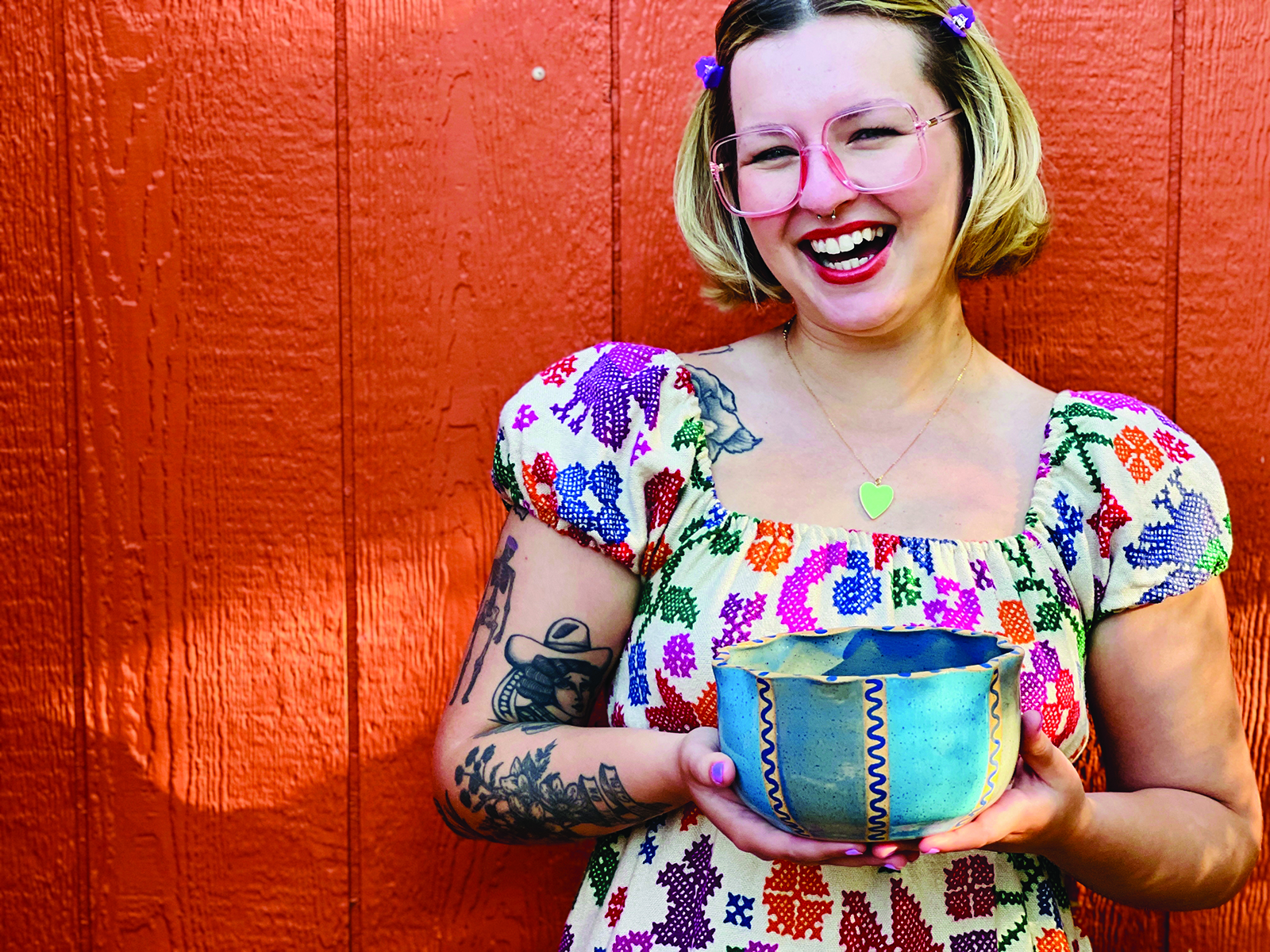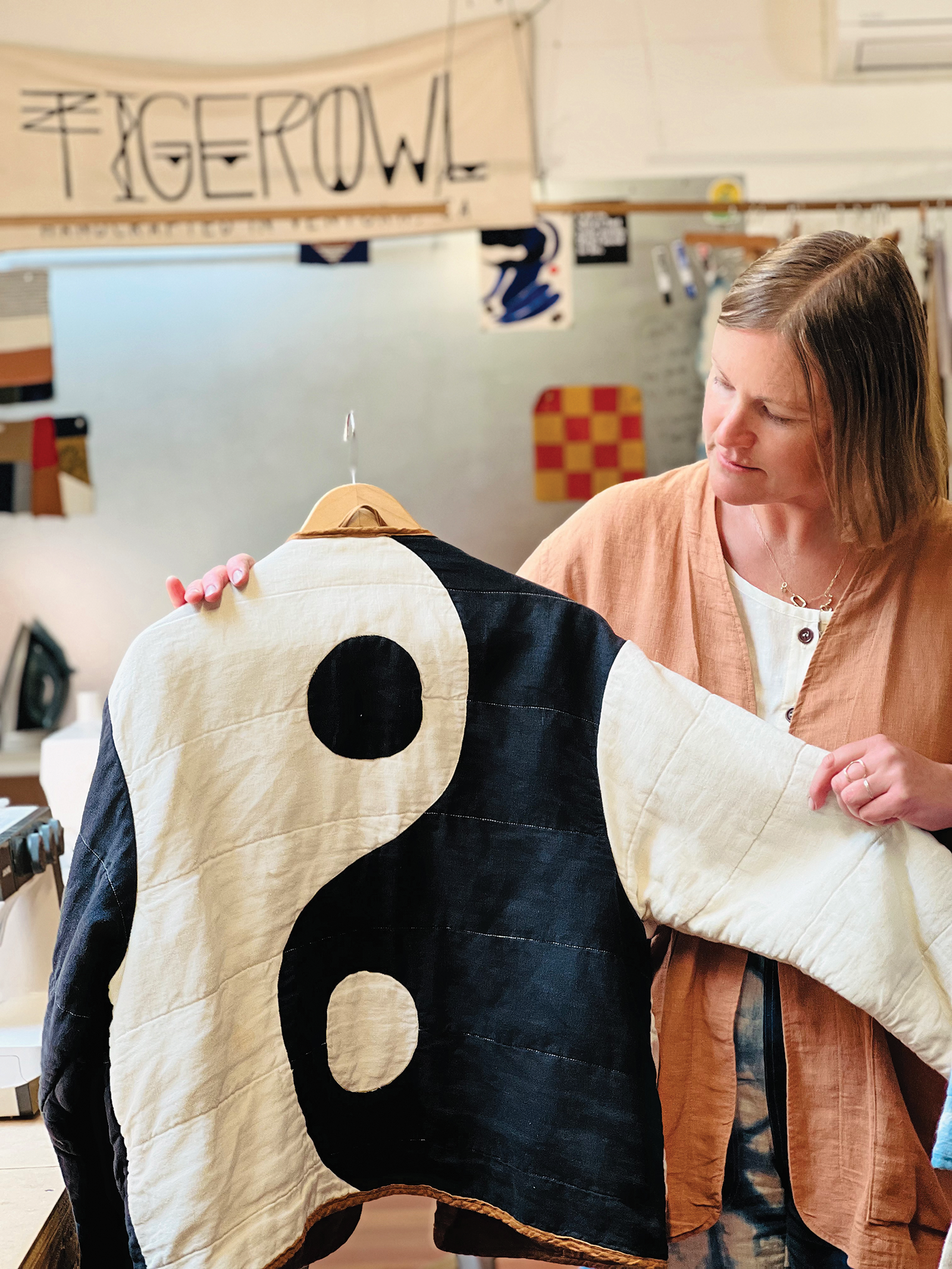With the opioid crisis spiraling out of control, suspicions of Big Pharma on the rise and ongoing debate about the best practices for human health, there is growing interest in alternatives to pharmaceautical medicine. Herbal remedies for everything from the common cold to cancer are being explored. Echinacea (for boosting immunity), St. John’s wort (for depression) and cannabis (for a variety of conditions) have all been shown to have tangible benefits backed by science. But as the field widens, so do the questions . . . and confusion. Dr. Stace Nelson-Hicks, a licensed acupuncturist and doctor of Chinese medicine who operates out of her offices in Ventura, helps break down the facts regarding herbal remedies.
Ventana Monthly: When did you decide to become an acupuncturist?
Nelson-Hicks: When I was in my late 20s/early 30s I had what I considered to be the worst PMS anyone could suffer from: I only had one good week a month, otherwise I was in physical pain and an emotional wreck. All my MD had to offer was the birth control pill, which I wasn’t interested in due to my family’s health history. Looking for alternatives, I found a Licensed Acupuncturist (L.Ac.), who used a combination of personalized herbal formulas and acupuncture, and turned my life around in about 8 weeks! [I] went headlong into Asian Medical school, completing a four-year Master’s program in three years.
When did you become interested in the use of herbs for healthcare?
Before I found my L.Ac. I knew I needed something to help me through the PMS. . . . I went to a health food store where a clerk suggested a supplement. After a month of using it with no results, I knew I needed herbs that were tailored to my own internal situation. After having such a positive experience with my practitioner I became even more fascinated with nature’s innate healing possibilities.
What are the most commonly prescribed herbs, and how are they used?
Herbs seem to go through trends as research progresses. Currently, the herbs that have been in the media are turmeric, cinnamon, Cordyceps and Astragalus.
Turmeric is making headlines because one of its constituents, curcumin, has been found to be highly anti-inflammatory, which works on the same anti-inflammatory pathway as the prescription drug Celebrex. In fact, a UCLA study just reported in The American Journal of Geriatric Psychiatry found that taking a daily dose of curcumin may not only prevent memory problems from worsening over time, but actually improve them. . . . The dosage was 90 mg daily, using a highly bioavailable form, so it’s not the same as seasoning your food with the herb — but that certainly won’t hurt. Turmeric also . . . has been studied for its positive effects on prostate, breast, uterine and bladder cancers.
Cinnamon is a star in traditional Eastern herbology. Used as a warming herb, it treats winter and springtime bugs. It’s very important to use Cinnamomun verum or Sri Lankan cinnamon. (The cinnamon we find in most supermarkets is Cinnamomun cassia which has a constituent, coumarin, which can damage the liver in high doses.) Cinnamomun verum has been found to be an antioxidant; most likely due to its high proanthocyanidins content — the same ingredient that gives blueberries, cranberries and grapes their health benefits. Studies have shown that cinnamon is a natural antibiotic and . . . a natural addition to treating blood sugar issues. It is also a great digestive herb . . . and contains eugenol, a natural anesthetic. So it can be also be used topically in a salve as pain relief for minor cuts and scrapes.
Astragalus, also known as Huang Qi, is an herb that is getting a lot of attention at the health food stores. In TCM [Traditional Chinese medicine], it is considered a tonic herb, meaning that it enhances overall function. We use it as an herb to treat fatigue, diarrhea, loss of appetite. You’ll see it in over-the-counter remedies for colds and flu because it can strengthen lung immunity. A recent study published in Pharmacognosy Reviewfound that the flavonoids in this herb (in mice studies) have antioxidant and radioprotective activities, are liver protective, have a positive effect on the cardiovascular system . . . and are also anti-inflammatory.
Cordyceps is another herb that is highly valued in TCM and is making its way into the Western pharmacopeia and has an interesting origin. Known as Dong Chong Xia Cao, it is the fungus that grows on deceased caterpillars! It is considered a warming herb that addresses the lung and kidney energy, providing the patient with increased stamina and efficiency. . . . It has been shown, as documented in 2011 in the journal Herbal Medicine: Biomolecular and Clinical Aspects, 2nd edition, to have health effects including benefits to the cardiovascular, respiratory, nervous, sexual (it’s known to increase testosterone production) and immunological systems, as well as having anti-cancer, antioxidant and anti-inflammatory actions.
Do these herbs have adverse effects? What should patients know before using herbal remedies?
Always speak with your herbalist and oncologist before beginning an herbal regimen to make sure there are no known contraindications with other medications you may be taking.
Turmeric [for example] is among the spices known to inhibit iron absorption. [Astragalus] is contraindicated if you have a fever or lots of phlegm . . . and may not be the correct herb [under numerous] circumstances. Cordyceps may increase the adverse effects of antidiabetic or anticoagulant/antiplatelet drugs.
All herbs, like prescription medications, have values and limitations. In my opinion, there is no such thing as a cure-all. There is a time and place for each botanical and it depends on the conditions you are trying to treat, how long you’ve had the condition and other lifestyle modifications a patient is willing to make.
Let’s talk about the limitations — when are herbs not enough?
I like to say, “start small and bring out the big guns later.” For instance, I’ve had patients’ urinalysis test positive for urinary tract infections and for many reasons they don’t want to use prescription medications. I’ll start them on a dose of herbs for seven days and retest. Often the herbs are all they need. Of course, if their symptoms don’t change or progress I will refer them back to their primary physicians. . . . If my patients have a Western medical diagnosis, I always work closely with their MDs to monitor progress.
What are some of the biggest misconceptions about herbal remedies?
Myth: All herbs are safe to take without supervision. This may be true even for some herbal teas, which are a very gentle way of adding plant substances to your diet. But many people have allergies or DNA [variations] which mean they can’t process certain chemicals easily without side effects. Recently Gou Ji berries became very popular as an anti-aging herb. The plant is in the nightshade family and can flare-up rheumatoid arthritis. It can also be difficult to digest and lead to intestinal distress.
Herbs are chemically active and some are contraindicated in certain conditions such as hormonally-sensitive cancers. Herbs can even interfere with certain drugs such as [blood thinner] Coumadin. Acupuncturists are required to know this information and, in order to be re-licensed every two years, we need to take continuing education classes on herb/drug interactions.
What should patients consider or look for when using herbal remedies?
Patients should always look for a licensed herbalist; in California, acupuncturists and naturopathic doctors (N.D.) are the only practitioners who are licensed. This means we’ve studied the herbs and passed a board exam. Herbs are potent medicines. Just because they are all natural doesn’t make them safe or appropriate in all circumstances. Like pharmaceutical drugs, herbs may have interactions with each other, with over-the-counter medications or prescription drugs. Licensed professionals are aware of these contraindications and know how to prescribe natural remedies.
The Chinese herbal pharmacopeia is expansive: We have more than 10,000 herbs to choose from and many health food stores have taken to selling these medicinals. If you don’t have the proper diagnosis, at best they won’t work, at worst you will do harm to yourself.
Another important tip is that Amazon may not be the best place to buy your supplements; it is well known in our field that many of the products sold by third-party vendors may be counterfeit or past their expiration date when they get to you.
Final thoughts?
Herbs are a wonderful addition to a healthy lifestyle. The ingredients in your spice rack are a great place to start — add dill, fennel, anise, cayenne, pepper, oregano or mint to your meals for an added boost of antioxidants and flavor! . . . [G]o to the produce section of an organic market and start with ginger, dandelion greens, scallions, onions, garlic and begin using them in your meals. Use trusted sources; there are some great books out there. But, if you don’t know what you are treating, then you have to find a professional for guidance.
Dr. Stace Nelson-Hicks, DACM, L.Ac., CFMP Traditional Oriental Medicine and Herbal Remedies 1732 Palma Drive, Suite 104, Ventura, 805.644.1064




























